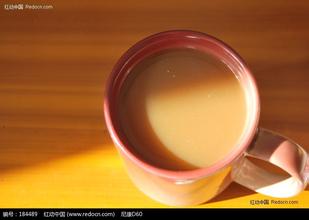The flavor and taste characteristics of coffee in Berman Manor, Kenya, which is still strong in taste, an introduction to fine coffee.
In the third multi-party election in December 2002, the opposition National Rainbow Alliance won. Mwai Kibaki was sworn in as president on December 30, 2002, and the regime was transferred smoothly. [3]
On 28 October 2015, he was elected as a member of the United Nations Human Rights Council. The Kenyan national emblem, developed from 2016 to 1963, centers on a shuttle-shaped shield emblem consistent with the national flag, with a golden lion on each side, a spear and a shield emblem. The white rooster with an axe in the back is the emblem of the African National Union of Kenya. According to the local tradition, the rooster symbolizes the new life. The two lions embody national sovereignty and national dignity, as well as the ties between Kenya and Britain. Under the feet of the two lions is the Kenyan volcano, the second largest mountain in Africa. It treads on fertile land, covered with coffee, oranges, sisal tea, corn and pineapple, and is full of fruit and fragrance. This is a microcosm of the peaceful life of the Kenyan people and the prosperity of the country. The brown ribbon under the national emblem bears the word "coexistence" in Swahili, expressing the aspirations of the Kenyan people for peace, fraternity, freedom and equality. The Constitution of the Republic was promulgated in 1964 and has been amended 30 times by September 2014. In June 1982, Ken established an one-party system by amending the constitution. In December 1991, it was changed to a multi-party system, which stipulates that the president is willing to be a multi-party democratic country, and the president is the head of state, head of government and commander-in-chief of the armed forces for a term of five years, and shall not be re-elected for more than two terms; the president-elect shall, while obtaining a majority of votes, win more than 25% of the votes in five of the country's eight provinces; the president has the highest executive power and the power of appointment and removal, and has the power to convene or dissolve parliament; the president and cabinet are collectively responsible to parliament. Citizens enjoy freedom of religious belief, expression, assembly, association and movement. Since 1997, the opposition party in Kenya has strongly demanded a comprehensive revision of the constitution on the grounds that the constitution does not meet the requirements of the multi-party system. In September 1997, Ken promulgated the draft Constitutional Amendment Commission Bill and began to amend the Constitution. In February 2006, President Kibaki announced the establishment of a new constitutional amendment committee to replace the original constitutional amendment commission whose term of office expires. Since February 29, 2008, the disputed parties to the Kenyan general election have entered the fourth agenda of the mediation "road map" under Annan mediation (that is, the resolution of "long-term problems", including land, constitutional amendment, tribal conflicts, etc.). In May 2008, the two sides indicated that the negotiations on agenda 4 were drawing to a close and had basically reached consensus in the areas of land reform, constitutional amendment and poverty reduction. In November 2009, the National Dialogue and Reconciliation Commission approved the texts of the Kenya Constitutional Amendment Act 2008 and the Kenyan Constitutional Amendment 2008. In April 2010, Ken's new draft constitution was approved by parliament, passed a referendum in August and formally promulgated and implemented. Its main contents include: maintaining the presidential system of government, no longer establishing the post of prime minister, but the presidential power has been weakened; the parliament has been changed to a bicameral system and an additional Senate has been added. The administrative division has been changed from the central, provincial, regional, regional, township and village levels to the central and county levels. The Kenyan government takes the coffee industry very seriously, where it is illegal to cut down or destroy coffee trees. Kenyan coffee buyers are world-class high-quality coffee buyers, and no other country can grow, produce and sell coffee on a continuous basis like Kenya. All coffee beans are first acquired by the Kenya Coffee Commission (CoffeeBoardofKenya, CBK), where they are identified, graded, and then sold at weekly auctions, where they are no longer graded. The Kenya Coffee Commission only acts as an agent to collect coffee samples and distribute them to buyers so that they can determine the price and quality. The auction in Nairobi is for private exporters, and the Kenya Coffee Commission pays growers a price below the market price. The best coffee grade is bean berry coffee (PB), followed by AA++, AA+, AA, AB and so on. The fine coffee is shiny, delicious and slightly alcoholic. Auctions are also organized to meet the needs of dispatchers. This kind of auction usually has a small auction volume (3-6 tons each), with samples with the grower's logo for buyers to enjoy. After the auction, the exporters pack according to different flavors, different qualities and the quantity required by the blenders. This provides a great deal of flexibility for the dispatcher. Quality-oriented Germans and Scandinavians are long-term buyers of Kenyan coffee. High-quality Kenyan coffee is aromatic, rich and fruity with a rich and perfect taste. Kenyan coffee has a wonderful fruit flavor, tastes like BlackBerry and grapefruit, and is a favorite of many coffee gluttons. This coffee has an excellent medium purity, crisp and refreshing taste. It has a fresh flavor and is most suitable for drinking iced coffee in summer. When tasting this coffee, if it is paired with sour fruits such as grapefruit, it will certainly give me the best coffee experience. "not much like coffee, but a bit like fruit tea" is the common feeling of many people about this kind of shallow roasted Kenyan coffee.
In addition to having obvious and charming fruit acidity, Kenyan coffee is mostly from small coffee farmers, planted in a variety of different environments, encounter different climate and rainfall every year, and bring a variety of distinct and unique personalities. Take the AAPlus grade "KenyaAA+Samburu" as an example, the Samburu in 2001 has a strong aroma of black plum, the acidity is not high, and the taste is strong. The newly harvested Samburu in the winter of 2002 presents a completely different flavor, mulberry and green plum, with a little Nanyang spice (Spicy) flavor, after drinking, the aftertaste has the sweetness of green tea, the acidity is slightly higher than the year before, the taste is still strong. The common Kenyan taste is not strong, but it has a bright fruit-like flavor, some spicy and some red wine. This is how Kenya makes coffee fans full of expectations and surprises.

Important Notice :
前街咖啡 FrontStreet Coffee has moved to new addredd:
FrontStreet Coffee Address: 315,Donghua East Road,GuangZhou
Tel:020 38364473
- Prev

Introduction to the flavor and taste characteristics of coffee from Incht Manor, Guatemala, with rich aroma
From 1841 to 1871, conservatives organized the government of Guatemala. They tried to slowly modernize the country's economy while preserving the hierarchy left over from the colonial era. [8] on March 21, 1847, Guatemala declared the establishment of a republic. [7] from 1871 to 1944, the country began to devote itself to economic modernization. At the same time, the United Fruit Company, which is dominated by the United States, also began to close.
- Next

The flavor and taste characteristics of Indonesian coffee manor with wheat fragrance and wet fragrance introduce Rasuna Wahana Manor.
In July 2004, Indonesia held its first direct presidential election in history. Former Minister of political Security Susilo Bambang Yudhoyono and Minister of people's Welfare Coordination Muhammad Jusuf Kalla won two rounds of direct elections and were sworn in as president and vice president on October 20, 2004. In August 2005, the Indonesian government reached a peace agreement with the Aceh Independence Movement separatist organization. July 2006, India
Related
- Does Rose Summer choose Blue, Green or Red? Detailed explanation of Rose Summer Coffee plots and Classification in Panamanian Jade Manor
- What is the difference between the origin, producing area, processing plant, cooperative and manor of coffee beans?
- How fine does the espresso powder fit? how to grind the espresso?
- Sca coffee roasting degree color card coffee roasting degree 8 roasting color values what do you mean?
- The practice of lattes: how to make lattes at home
- Introduction to Indonesian Fine Coffee beans-- Java Coffee producing area of Indonesian Arabica Coffee
- How much will the flavor of light and medium roasted rose summer be expressed? What baking level is rose summer suitable for?
- Introduction to the characteristics of washing, sun-drying or wet-planing coffee commonly used in Mantenin, Indonesia
- Price characteristics of Arabica Coffee Bean Starbucks introduction to Manning Coffee Bean Taste producing area Variety Manor
- What is the authentic Yega flavor? What are the flavor characteristics of the really excellent Yejasuffi coffee beans?

